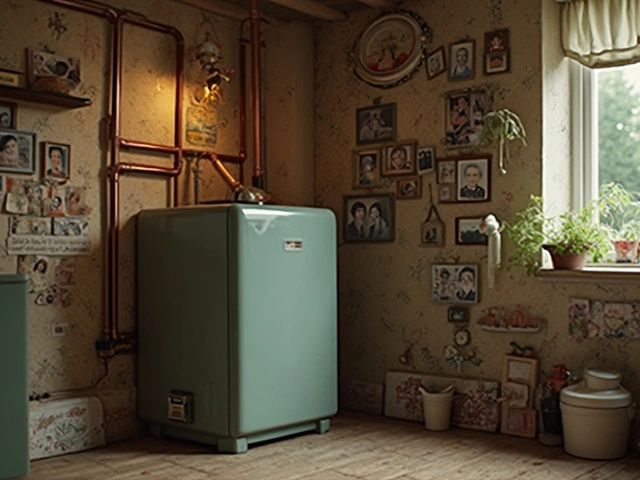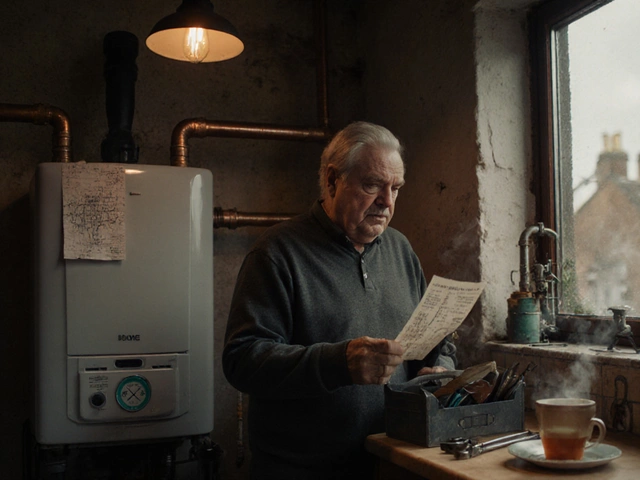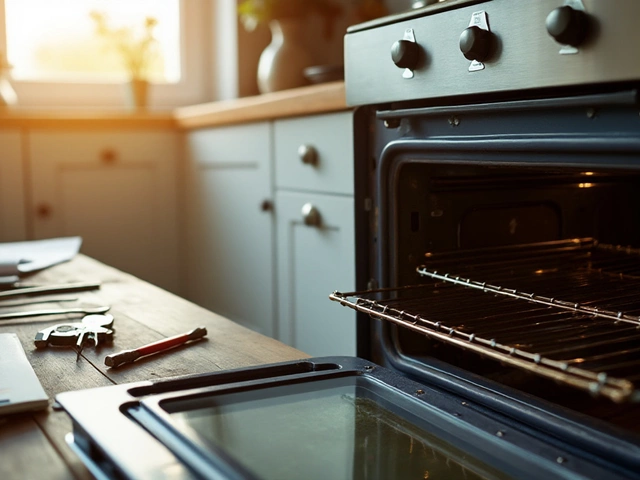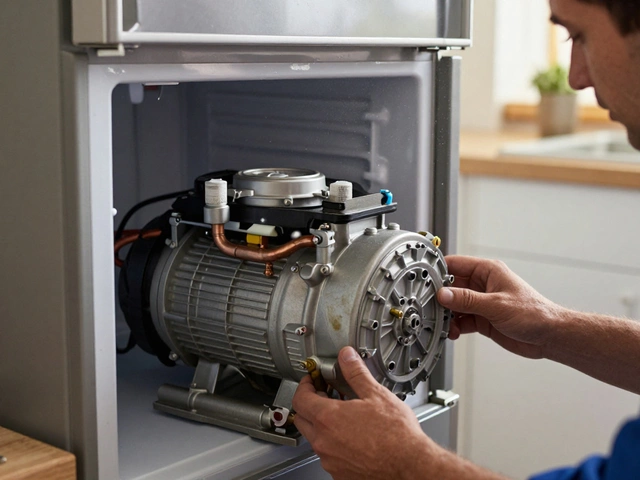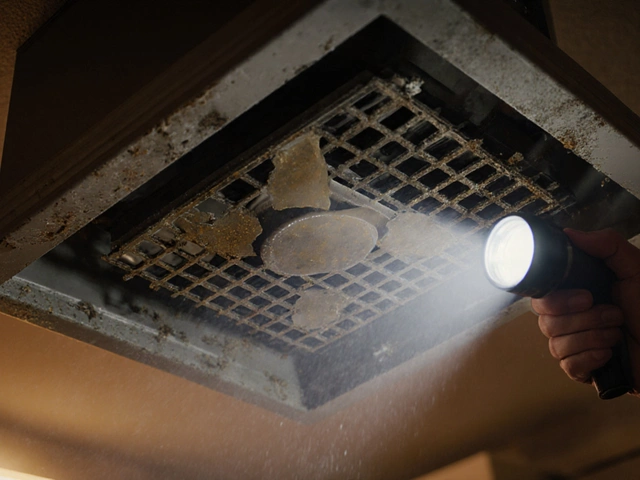No one wants to wake up to a freezing shower and a puddle in the basement. Water heaters are the unsung heroes of modern living, quietly pounding out hot water for your morning routine, laundry, and a thousand other little comforts. But most people only give their water heater a second thought when something goes wrong. The kicker? That moment often comes out of nowhere, and it’s usually years after installation—sometimes way sooner than it should.
How Long Does a Water Heater Really Last?
The myth that a water heater will just keep going forever is persistent. The truth is a water heater’s lifespan is a lot like the ticking clock on a carton of milk: there’s a "best by" window, and some last a bit longer than others depending on how you care for them (and a bit of luck). On average, a traditional tank-style water heater lasts between 8 to 12 years. Tankless models? They’re the overachievers, typically stretching out service between 15 to 20 years, especially if you treat them right.
If you’re wondering why some water heaters barely cross the finish line at ten years while others cruise into their teenage years, let’s drill down into the nuts and bolts. First, what type are we talking about? Here’s a quick table to sum it up:
| Type | Average Lifespan |
|---|---|
| Conventional Tank (gas or electric) | 8-12 years |
| Tankless (on-demand) | 15-20 years |
| Heat Pump (hybrid) | 10-15 years |
| Solar | 10-20 years |
Now, if you’re in the U.S., odds are you have a tank-style unit sitting in a closet, garage, or basement. These old faithfuls have an internal glass liner and a sacrificial anode rod to slow down corrosion. But as the tank ages, minerals in your water start to build up. Sediment settles at the bottom, acting like insulation against the burner or heating element, which makes heating less efficient and stresses the metal more. That’s why you hear that rattling or popping as they age—it’s just a protest from all that gunk inside.
Did you know hard water can shave years off your water heater’s life? If your home gets water with a high mineral content (think of the crusty stuff around your faucets), you’re more likely to face premature failure. Also, frequent, short heating cycles beat up the components more than gentle, spaced-out usage. If you run out of hot water all the time, your heater is working overtime, and that accelerates wear and tear. Here’s one more pitfall: ignoring basic maintenance. Almost nobody does it, but flushing your heater once a year can really prolong its lifespan.
So, if your heater is pushing a decade, it’s not being dramatic to start thinking about a replacement plan. Insurance claims for water damage commonly start with a burst old tank. Most plumbers will tell you that once you hit the 10–12-year mark, you’re rolling the dice every time you shower. And if you notice leaks, rusty water, or loud banging noises, that’s your cue. Sometimes, it’s more about listening than looking—strange sounds mean internal parts are failing.
Here’s a tip: check your heater’s serial number for clues about its age. Most manufacturers hide the manufacture date in the first four digits. For instance, "1508..." could mean August 2015, but always check the brand’s format online since they love to mix it up. This is your detective move when the installer’s sticker is long gone and nobody remembers when it was put in.

What Impacts Water Heater Lifespan? Surprising Truths From the Field
Let’s clear up a few myths about how and why water heaters last—or die young. Most people think brand doesn’t matter much, but some manufacturers consistently outshine others in reliability tests. For example, heaters from brands like Rheem, Bradford White, and AO Smith usually nudge a year or two past the average, especially for units built in the last five years. But even superstar brands need the basics: proper installation, routine service, and the right conditions.
Installation is the unsung factor. A poorly installed water heater, with the temperature set too high or connections not sealed well, is basically on a timer to fail. Most water heaters are set to 140°F out of the box, but that’s hotter than you need and speeds up corrosion. Set it to 120°F for a perfect blend of safety and longevity. Then there’s the water pressure. If it’s too high, it puts stress on valves and seals, so those leak warnings show up early. The sweet spot is between 50 and 60 psi for most households. You can test it yourself with a cheap gauge from a hardware store.
Routine maintenance doesn’t mean crawling around in a boiler suit. Flushing the tank once a year (or twice if you have hard water) keeps sediment from building up. Testing the temperature and pressure relief valve once a year makes sure it’ll work if the unit ever overheats. And don’t forget the anode rod—the unsung hero. It attracts corrosive minerals so your tank doesn’t rust, but after about four years, it’s usually eaten up and needs a swap. Most plumbers charge under $200 for this, and it can add several years to your heater’s service.
Something you might not realize: location matters. A water heater sitting in a humid basement or uninsulated garage faces a tougher fight than one perched in a cozy utility closet. Moisture, temperature swings, and even exposure to salty air if you live near the coast are all factors that speed up rust. If you’re stuck with a basement or garage install, wrap the tank with a water-heater blanket (get one rated for your type) and check once a year for rust on fittings.
But sometimes, a heater’s fate is sealed at the factory. Manufacturing quality varies, and occasionally, even top brands produce a dud that leaks within a couple of years. It’s rare, but it happens enough that warranties are a good thing to check. Standard warranties run six years, but you can often pay to extend them out to 9 or 12. Here’s the catch: those extra years only matter if you’ve kept up with basic maintenance (yes, they actually check).
If you get city water, you’re probably safe from the nasty stuff well water can do, but you never know until you test. Hardness and acidity can accelerate corrosion, so a home water test kit (about $15 online) can help you decide if you need a softener or just extra routine flushes. Even soft water isn’t always a winner, since it can be more acidic and still tough on metals.
Here’s a practical tip: every time you get a plumber out for anything, have them check over your water heater. Most inspections cost next to nothing when bundled with other work, and you often catch little issues—like a sweating tank, loose wiring, or rusty spots—long before they become emergencies.
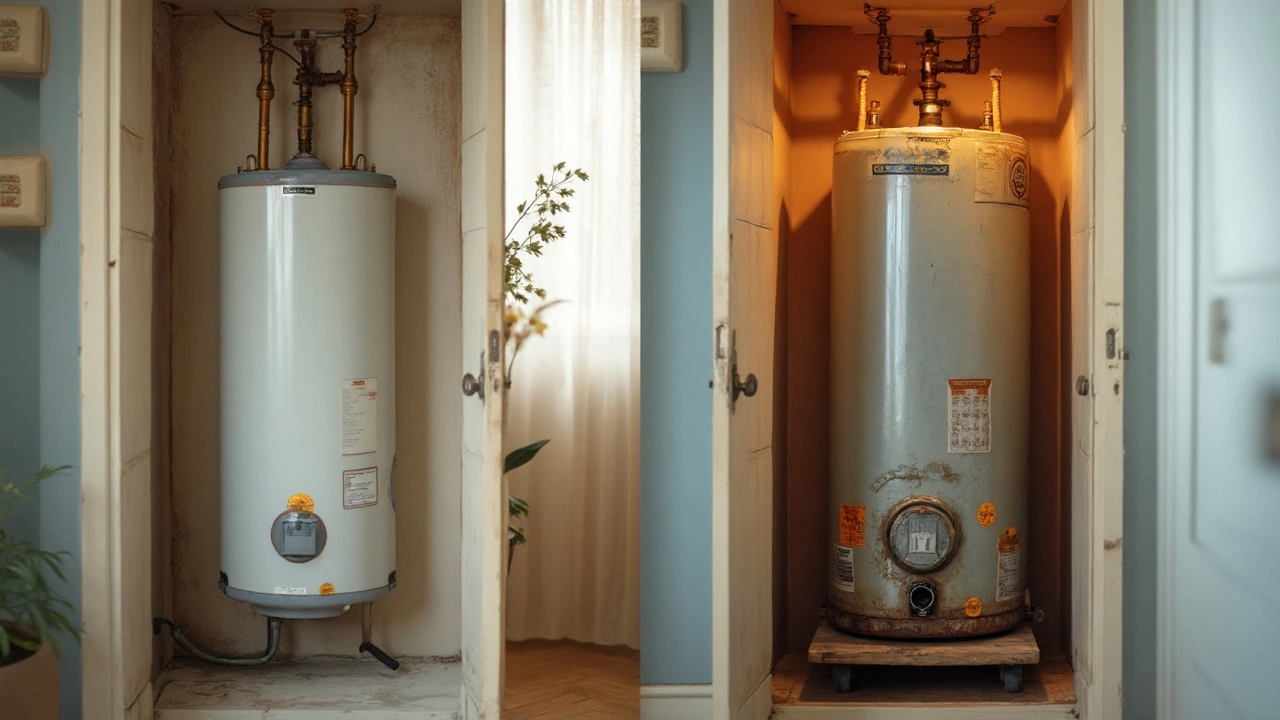
Upgrade, Repair, or Replace: Making the Smart Choice
If you’re thinking, “Mine just works, why replace it?”—you’re not alone. Plenty of heaters limp along years past their prime, but at what cost? Old water heaters are notorious for wasted energy. According to the U.S. Department of Energy, water heating eats up nearly 20% of the average home’s energy bills. An older unit not only struggles with efficiency but can also pose safety risks—like leaks causing mold, electrical shorts, and even scalding water. The worst? Tank ruptures dump 40-50 gallons of water in a matter of minutes.
Let’s talk numbers. Even if your conventional tank runs 12 years, after 8 years, its efficiency starts to slip. Every inch of sediment costs you about 2-5% more in energy bills annually. That adds up fast over a few winters. Tankless heaters, by contrast, don’t build up sediment in the same way, last longer, and only heat water on demand—they can be about 24-34% more efficient for homes that use less than 41 gallons per day (typical for small families or empty-nesters).
So what’s smarter: repair or replace? If your tank is leaking—from the bottom, not just a loose valve—it’s time for a new one, no debate. Corrosion is a death sentence. But if it’s a broken thermostat, pressure valve, or worn-out element, these can be fixed for $100–$300. The rule of thumb: if the repair bill approaches half the price of a new heater, or your unit is pushing 10+ years, it’s more cost-effective to invest in a replacement.
If you do decide to upgrade, shop for ENERGY STAR-rated models. They sometimes qualify for rebates and save significant dollars every year. Hybrid heat pump models are catching on fast for their efficiency (they work kind of like a fridge in reverse), and tankless units offer endless hot water if you install the right size. Don’t just go by tank volume, either—match your household’s busiest hour for hot water and buy accordingly.
One more thing: draining a tank yearly, swapping out the anode rod, and setting the temp lower all help new units last much longer. If you want the absolute longest life? Get a water softener if your tests show hard water, and never ignore weird sounds or leaks—catching problems early is how you squeeze every last year from your investment.
No water heater lasts forever, but with the right care and a little detective work, you can get a decade (or more) of hot showers without drama. Treat your water heater with some respect, give it an annual checkup, and know the signs of aging. When the time comes to replace, you’ll be ready—and you won’t have to take a cold shower before work.

